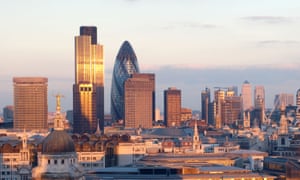
Hermes: Very hard to reach Brexit deal in two years
I mentioned earlier that many UK business leaders see securing a free trade deal with Europe as a top priority.
The best option might be a deal that gives Britain tariff-free access to the customs union, but not full membership, argues Neil Williams, chief economist at Hermes Investment Management.
He writes:
Turkey and Canada have enjoyed customs-union access with the EU without membership. Canada’s in 2016 came after seven years of negotiation. And, needing sign-off by all EU states, it was stalled by the Belgian region of Wallonia!
Chancellor Hammond’s threat that without access, much lower UK corporate tax rates will be needed to maintain FDI and competitiveness (which risks a European ‘chase to the bottom’) looks an early stick to achieving similar privileges.
But getting such a deal within two years — the window created by Article 50 — will be very tough, Williams adds:
First, the deal when struck will need Parliamentary approval, and then be subject to a ‘phasing in’ period (Mr Hammond has suggested two years) to allow firms, consumers and officials to adjust to the new arrangements. A second independence referendum in pro-EU Scotland, though not precluding Brexit, could also provide an extra hurdle to completing it before the General Election scheduled for May 2020.
Second, the UK is relying on a cooperative sign-off by its 27 EU peers. The only real precedent we have is Greenland’s exit in 1985. This was a ‘soft’ exit, but it took three years. We, larger and 44 years entwined in the EU, will need longer.
We’re opening the ‘trapdoor’ in a highly-charged political year. Voters facing national elections in Germany, France, The Netherlands and probably Italy may want to approach it as protest to six years of euro-zone austerity. In the ‘peripheral’ economies, reform fatigue and populist parties are building. Therefore, incumbents may be reluctant to condone an easy UK exit that puts its economy ahead of their own.
UK MPs will get down to the nitty-gritty of Brexit today, as they debate the government’s bill allowing ministers to trigger Article 50.
Our political correspondent Peter Walker explains:
This is the period when amendments are debated, and there are many dozens of them tabled. Today is more focused on amendments connected to process, with the more fundamental ones – notably on the rights of EU citizens in the UK, and whether parliament gets a final say over the eventual Brexit deal – coming tomorrow.
But today should see signs of whether any Conservative MPs are mustering a rebellion on either of those issues, especially now the government has indicated it is not minded to back down unilaterally.
Peter is tracking all the action in Politics Live:
UK MPs will get down to the nitty-gritty of Brexit today, as they debate the government’s bill allowing ministers to trigger Article 50.
Our political correspondent Peter Walker explains:
This is the period when amendments are debated, and there are many dozens of them tabled. Today is more focused on amendments connected to process, with the more fundamental ones – notably on the rights of EU citizens in the UK, and whether parliament gets a final say over the eventual Brexit deal – coming tomorrow.
But today should see signs of whether any Conservative MPs are mustering a rebellion on either of those issues, especially now the government has indicated it is not minded to back down unilaterally.
Peter is tracking all the action in Politics Live:
The 5.2% surge in German factory orders in December shows that Europe’s economy entered this year in good spirits, argues Marc Ostwald of ADM Investor Services:
This underlines that domestic demand in Germany and the Eurozone as a whole looks considerably more robust than many forecasters are assuming, and with such solid momentum going into Q1, the consensus 1.4% y/y forecast for 2017 German GDP looks to be under-clubbed, 1.7%/1.8% looks more likely and 2.0% is a distinct possibility.
That would be good news for UK exporters too, as Germany is the second largest export market for British firms (after the US).
The slide in the pound since the Brexit vote has been a blow to Britain’s beer industry.
Craft brewers, for example, are worried that imported hops and malt will simply be too expensive, while some big brewers have been hiking prices.
Now Camra, which represents beer lovers, is pushing the government to cut the duty on a pint; 1p may not make a big difference, though. More here:
[Source:-The Guardian]



